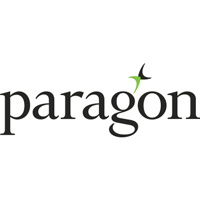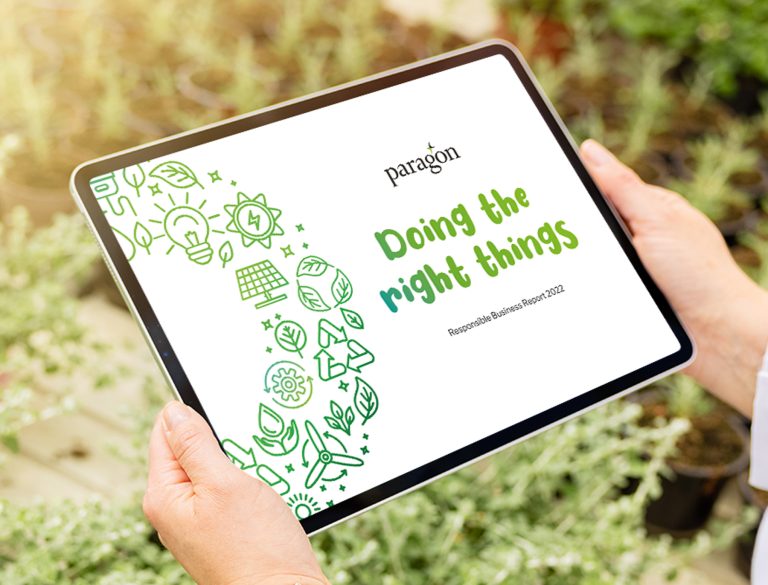Paragon Banking Group PLC (LON: PAG), the specialist lender and banking group, today announced its full year results for the year ended 30th September 2019.
Nigel Terrington, Chief Executive of Paragon Banking Group, said:
“We are delighted to report another excellent financial and operational performance, underpinned by our effective diversification strategy and focus on specialist lending. Volumes, profits and dividends are up strongly, and we are moving closer to our medium-term target of over 15% return on tangible equity.
“Paragon’s transformation to a broadly based specialist banking group has continued over the last year. Our customers have increasingly complex needs which are supported by ongoing technology investments and the deep experience of our employees. This approach, alongside a disciplined and prudent risk appetite, has enabled us to achieve strong lending growth at improving margins, whilst maintaining an exemplary credit performance.
“Whilst there is uncertainty in the environment we have prepared well and look forward with optimism to the opportunities ahead.”
Operational and financial KPIs
· Growth in lending volumes of 8.5% to £2.53 billion (2018: £2.33 billion)
· Net interest margin (‘NIM’) improved to 229bp (2018: 221bp)
· Cost income ratio increased to 42.1% (2018: 40.6%)
· Underlying profit before tax increased 5.0% to £164.4 million (2018: £156.5 million)
· Retail deposit balances up 20.7% to £6.39 billion
· Technology developments enhancing customer and broker service
· Cost of risk (now measured under IFRS 9) 7bp (2018 IAS 39: 6bp)
· Strong capital base supporting growth, with basic CET1 of 13.7% (2018 13.8%)
· Increased dividend up 9.3% to 21.2 pence per share (2018: 19.4 pence)
OVERVIEW AND OUTLOOK
Overview
Paragon has delivered another year of excellent financial and operational progress, reflecting the strength of our strategy to become the UK’s leading specialist bank. While we have significantly diversified the Group in recent years, we remain focused on specialist lending which requires a deep understanding of the markets in which we trade, the customers we serve, the products we provide, the services we offer and the risks we incur. This has enabled Paragon to both grow its business and create a structural improvement in its net interest margin at a time when the wider banking sector has been subject to considerable competitive and margin pressures.
Financial performance
Underlying profits for the year increased by 5.0% to £164.4 million with strong performances across the Group. Paragon’s new mortgage lending has delivered higher margins than its legacy buy-to-let portfolio. Together with wider margins earned through significant new business growth within the Commercial Lending division, this helped to deliver an 8 basis-point improvement in net interest margin to 229 basis points. This was achieved despite the amortisation of the Idem Capital portfolio and the Group maintaining strong levels of liquidity, both actual and contingent, during the period in response to the economic uncertainties inherent in the UK’s Brexit process.
We have seen lower levels of buy-to-let redemption activity in the period at 8.6%, down from 10.3% in 2018. This is led by greater levels of customer retention of our specialist landlord customers and the extension of product maturity profiles.
The Group completed the sale of its residual interest in its Paragon Mortgages (No.12) PLC (“PM12”) securitisation in June. The sale generated an exceptional gain of £9.7 million and removed £695.8 million of legacy loan assets from the balance sheet, generating additional capital capacity. The Group’s loan book therefore grew by 0.5% during the year to £12.1 billion. Excluding PM12, underlying growth was 7.0%.
Operating costs were 11.9% higher than in 2018 at £125.2 million reflecting a full year’s costs relating to the acquisitions of both Titlestone and Iceberg, acquired in July 2018 and December 2017 respectively. The Group continues to increase its spending to support IT resilience, and during the year it made further investments in developments both to improve efficiency and to provide an enhanced experience to its customers, a process that will continue into 2020 and beyond. The Group also incurred significant professional costs in the period to support its pending IRB application where project and professional costs contributed over £2.4 million to the cost base during 2019. The Group anticipates that these investments will contribute to improving operational leverage over the longer term.
Reflecting our disciplined underwriting approach, the Group’s cost of risk has remained stable with a charge of 7 basis points, compared to 6 basis points in 2018, reflecting the introduction of the IFRS 9 accounting approach. The cost of risk is skewed towards newer lines of business where the growth is strongest. Careful management of all the Group’s loan books continues to be a strategic priority, for both retention and credit purposes.
Underlying earnings per share increased 6.0% to 51.1 pence per share, and the underlying RoTE increased to 14.6% from 14.0% in 2018 as the Group continued to make progress towards the medium-term target of over 15%.
Statutory earnings per share were 11.6% lower year-on-year at 49.4 pence per share, despite the improved underlying performance. The statutory performance was as a result of the fair value losses during the period, impacted by declining swap rates and a strong gain recognised on the sale of an Idem Capital portfolio during 2018. The fair value movements, which relate principally to derivatives which are part of economic hedges not qualifying for hedge accounting are a non-cash items and will be profit neutral over time.
New business activity
The focus of our Mortgages division continues to be on meeting the needs of specialist landlords. Specialist buy-to-let lending comprised 91.4% of the period-end pipeline and 88.8% of completions (2018: 87.8% of pipeline and 79.3% of completions respectively). The Group’s buy-to-let lending, at £1.48 billion, was in line with the previous year (2018: £1.50 billion). Paragon’s pipeline of buy-to-let loans at the year-end was £911.7 million, an increase of 17.0% on the same position a year earlier (2018: £778.9 million).
Paragon’s Commercial Lending division has seen the greatest rate of growth, with new loans and advances up 36.3% at £968.0 million and the net loan book 28.1% higher at £1.45 billion as it benefitted from a full year of Titlestone. Total new advances were £258.0 million higher, with development finance up £226.1 million, SME lending up £51.8 million, structured lending up £9.1 million and motor finance down £29.0 million, following a strategic focus on margin improvement over volume growth. Our existing development finance business has now been fully integrated with the Titlestone business.
The strong returns available in the Commercial Lending division underpin the Group’s strategic decision to switch capital allocation towards it, rather than Idem Capital during 2019. Idem Capital retains the skill sets and optionality to make further investments should the risk adjusted returns on such purchases return to more sustainable levels. However, in the near term the Group expects to continue to redirect its capital resources to Commercial Lending.
The Group has continued to emphasise the importance of retail deposits within its funding mix, with balances rising 20.7% year-on-year to £6.39 billion, and now accounting for almost half the Group’s funding by the year end. The business currently sources the majority of its deposit flow through its online presence but has been actively pursuing a strategy to broaden the product range and distribution channels to increase capacity. Increasing the size of the addressable market will improve out price control and, in time, support margin management. A notable success this year has been the activity with wealth managers and banking platforms, where we see further opportunities for growth in the future.
The Group completed its first SONIA referenced securitisation transaction, Paragon Mortgages (No. 26) PLC during the year, demonstrating the optionality benefits of wholesale funding complementing Paragon’s core retail funding strategy.
Capital management
Capital ratios remain strong, with a CET1 ratio of 13.7% marginally reduced during the period (2018: 13.8%), reflecting primarily the growth in the balance sheet and the impact of distributions to shareholders through buy-backs and dividends. The UK leverage ratio remains strong, at 6.7%. The Group maintains a strong capital position, with IFRS 9 transition not having a major impact (the fully-loaded CET1 ratio being 13.4%).
The Company’s dividend policy is underpinned by the principle of enhancing shareholder returns on a sustainable basis. The Board is proposing a dividend of 21.2 pence per share for the year, an increase of 9.3% (2018: 19.4 pence) reflecting the strength of the business and its capital position. After accounting for fair value movements and gains in the year, this results in a dividend cover ratio of marginally less than 2.5 times. We expect our dividend cover ratio to be around 2.5 times in normal conditions going forward.
Diversification, growth and capital optimisation
The diversification of the Group’s loan books and funding sources, delivered by organic growth and acquisition, has been a core part of our strategy over the past five years. As a specialist bank, we differentiate our offer through having better understanding of our markets, our customers, our products and the application of credit risk. Our broadly-based funding approach and greater mobility of capital enables us to allocate resources more efficiently to where we can achieve the most optimal balance between growth, returns and risk, whilst always operating within our conservative risk appetite.
Following completion of the PM12 residual sale, the Board determined that the capital released by that transaction should in part be distributed by way of a share buy-back programme. £26.7 million was invested during the period. This was the Group’s first residual sale and aligns with our strategy to focus increasingly on specialist lending whilst optimising capital, raising margins and improving returns on equity.
The Group has continued to develop its application for IRB status to form the basis for its capital requirements during 2019. In September, the Bank of England issued a consultation paper (CP21/19) detailing the requirements for established and aspirant IRB firms to embed certain future regulation within their models during 2020. The more material items are already included in the Group’s buy-to-let models, but the Board has concluded that it wishes the Paragon models to be compliant with the CP before submitting a formal IRB application.
Outlook
It is well-documented that the political and economic environment remains uncertain, but the Group has prepared accordingly and in addition, has a high quality loan portfolio and a strong new business pipeline. Our diversified model and mobility of capital allows us to redirect our resources to deliver the optimal combination of growth, returns and risk. We are confident that we will continue to grow lending and improve the Group’s net interest margin. We look forward to the year ahead with confidence in our strategy and the strength of our franchise.







































